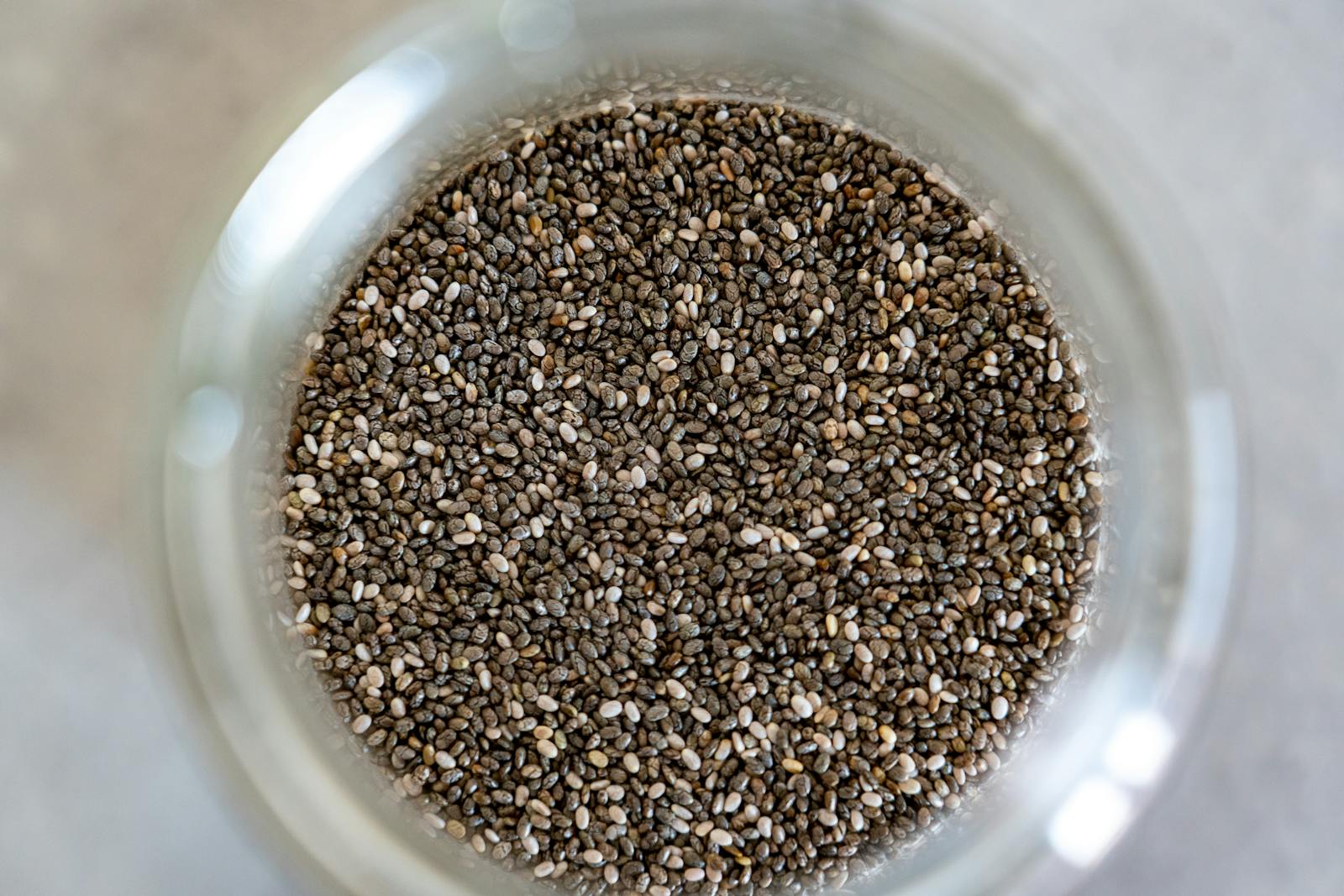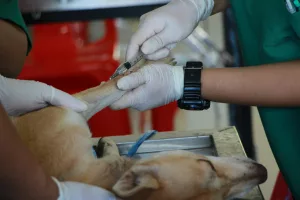Chia seeds have become a staple in many health-conscious diets due to their rich content of omega-3 fatty acids, fiber, protein, antioxidants, and various essential vitamins and minerals. While humans have embraced chia seeds as a superfood, a common question arises among pet owners: Are chia seeds safe for pets? The good news is that chia seeds are not only safe for most pets but can also offer a variety of health benefits when incorporated into their diet.
However, as with any new food, it’s essential to understand how chia seeds should be introduced into your pet’s diet, the appropriate quantities, and potential risks. In this article, we will explore whether chia seeds are safe for dogs, cats, and other common household pets, along with their benefits, risks, and best practices for feeding them to your furry friends.
The Nutritional Profile of Chia Seeds
Before diving into the specific benefits for pets, it’s important to highlight what makes chia seeds so nutritious. These tiny black or white seeds come from the Salvia hispanica plant, which is native to Central and South America. Just one tablespoon (approximately 15 grams) of chia seeds contains the following:
- Calories: 58
- Protein: 2 grams
- Fiber: 5 grams
- Omega-3 Fatty Acids: 2,800 milligrams
- Calcium: 8% of the recommended daily intake (RDI)
- Magnesium: 7% of the RDI
- Phosphorus: 7% of the RDI
- Antioxidants: Rich in quercetin, caffeic acid, and chlorogenic acid
Chia seeds’ high content of omega-3 fatty acids, fiber, calcium, magnesium, and antioxidants makes them a beneficial supplement not only for humans but also for many pets.
Are Chia Seeds Safe for Pets?
Yes, chia seeds are generally safe for pets, including dogs and cats, when given in moderation. They are non-toxic and can be a healthy addition to your pet’s diet, offering similar health benefits to those seen in humans. Chia seeds are an excellent source of omega-3 fatty acids, which are essential for maintaining a healthy coat, skin, and overall well-being. Additionally, chia seeds’ high fiber content can support digestive health in pets, promoting regular bowel movements and reducing constipation.
Safety for Dogs
Chia seeds are safe for dogs and can provide several health benefits. However, it is crucial to introduce them slowly and in the correct dosage. The key benefits of chia seeds for dogs include improved joint health, digestive health, heart health, and a shinier coat due to their high omega-3 fatty acid content. Many dog owners also find that chia seeds help their dogs maintain a healthy weight by promoting satiety.
Dosage for Dogs
The recommended dosage for dogs depends on their size:
- Small dogs (under 20 lbs): 1/4 teaspoon of chia seeds per day.
- Medium dogs (20–40 lbs): 1/2 teaspoon of chia seeds per day.
- Large dogs (40 lbs and above): 1 teaspoon of chia seeds per day.
It’s important to soak chia seeds in water before feeding them to your dog, as they expand when mixed with liquid. Soaking the seeds will reduce the risk of choking and make them easier to digest.
Safety for Cats
Chia seeds are also safe for cats and can provide a range of health benefits. Like dogs, cats can benefit from the omega-3 fatty acids, fiber, and protein in chia seeds. Omega-3s support brain health, improve the immune system, and reduce inflammation, which can be especially helpful for aging cats or those with joint issues. The fiber in chia seeds can help regulate digestion, making them an effective remedy for constipation or diarrhea in cats.
Dosage for Cats
Since cats are smaller animals, they need a much smaller dose of chia seeds compared to dogs:
- Adult cats: 1/4 teaspoon of chia seeds, 2-3 times per week.
As with dogs, it’s important to soak the chia seeds in water before giving them to your cat. Cats are often picky eaters, so you can mix the soaked seeds into wet food or sprinkle them over their regular meals.
Health Benefits of Chia Seeds for Pets
Chia seeds offer a variety of health benefits for pets, from supporting joint health to improving skin and coat condition. Here are some of the key benefits of incorporating chia seeds into your pet’s diet.
1. Promotes Healthy Skin and Coat
One of the standout benefits of chia seeds for pets is their high content of omega-3 fatty acids, particularly alpha-linolenic acid (ALA). Omega-3s are essential for maintaining a healthy coat and reducing inflammation in the skin. Pets that suffer from dry skin, allergies, or skin irritations can benefit greatly from the anti-inflammatory properties of chia seeds. A healthier coat means less shedding, a shinier appearance, and reduced risk of infections or skin problems.
2. Supports Joint Health
The anti-inflammatory properties of omega-3 fatty acids in chia seeds also support joint health in pets. Older pets, particularly dogs and cats, can develop conditions like arthritis, which leads to pain and reduced mobility. Omega-3s can help reduce inflammation in the joints, making it easier for pets to move around and reducing discomfort. This makes chia seeds particularly useful for aging pets or those suffering from joint pain.
3. Improves Digestive Health
The high fiber content in chia seeds can help regulate your pet’s digestive system. Fiber is essential for promoting regular bowel movements and preventing constipation. It also helps maintain a healthy gut microbiome by feeding the beneficial bacteria in the digestive tract. Pets that suffer from digestive issues, such as constipation, diarrhea, or irritable bowel syndrome (IBS), can benefit from the prebiotic properties of chia seeds.
4. Supports Weight Management
Chia seeds can help pets maintain a healthy weight by promoting satiety and reducing the urge to overeat. The soluble fiber in chia seeds expands in the stomach, helping pets feel full for longer periods without consuming excess calories. This can be particularly beneficial for overweight pets or those prone to weight gain. By incorporating chia seeds into your pet’s diet, you can help them manage their weight while ensuring they receive essential nutrients.
5. Boosts Heart Health
Omega-3 fatty acids in chia seeds are not only good for skin and joints but also play a crucial role in promoting heart health. Omega-3s help lower cholesterol levels, reduce blood pressure, and improve circulation in pets, just as they do in humans. By incorporating chia seeds into your pet’s diet, you can help reduce the risk of heart disease, especially in older pets that may be more prone to cardiovascular issues.
6. Improves Brain Health and Cognitive Function
Chia seeds’ high omega-3 content also benefits brain health in pets. Omega-3 fatty acids support cognitive function, memory, and learning abilities. For older pets, particularly dogs, chia seeds can help slow down cognitive decline and improve mental clarity. Omega-3s have also been linked to improved behavior in dogs, making chia seeds a useful supplement for pets with anxiety or hyperactivity.
7. Strengthens the Immune System
Chia seeds contain a range of antioxidants, such as quercetin and caffeic acid, which help protect your pet’s cells from damage caused by free radicals. Antioxidants are essential for maintaining a strong immune system, and they help prevent diseases and infections in pets. By incorporating chia seeds into your pet’s diet, you can boost their immune system and reduce their risk of developing chronic illnesses.
8. Promotes Healthy Bones and Teeth
Chia seeds are rich in calcium, magnesium, and phosphorus, all of which are important for bone health in pets. Calcium is essential for strong bones and teeth, and chia seeds can help supplement calcium intake, particularly in pets that may not consume enough calcium through their regular diet. The additional magnesium and phosphorus in chia seeds further support the maintenance of healthy bones and teeth, reducing the risk of bone-related issues as your pet ages.
How to Safely Introduce Chia Seeds to Your Pet
While chia seeds are generally safe for pets, it’s important to introduce them gradually and ensure they are properly prepared. Here are some guidelines for safely feeding chia seeds to your pets:
1. Soak the Chia Seeds
Chia seeds expand when they absorb liquid, which can pose a choking hazard for pets if they are fed dry. To avoid this, always soak chia seeds in water for at least 10-15 minutes before feeding them to your pet. The soaked seeds will form a gel-like consistency that is easier for your pet to digest and reduces the risk of choking.
2. Start with Small Amounts
When introducing chia seeds to your pet’s diet, start with small quantities to see how they tolerate it. Some pets may experience digestive upset if they consume too much fiber too quickly. Gradually increase the amount of chia seeds over time, while monitoring your pet’s digestion and overall response.
3. Mix with Food
To encourage your pet to eat chia seeds, mix them with their regular food. For dogs, you can sprinkle the soaked chia seeds over their kibble or mix them into wet food. For cats, you can add the chia seeds to their wet food or homemade meals. Most pets will not notice the addition of chia seeds, especially if they are mixed well with their food.
Potential Risks and Precautions
While chia seeds are generally safe for pets, there are a few potential risks to be aware of:
1. Choking Hazard
As mentioned earlier, chia seeds can expand when exposed to liquid, which could cause choking if they are fed dry. Always soak the seeds in water or another liquid before feeding them to your pet to reduce this risk.
2. Digestive Upset
Because chia seeds are high in fiber, introducing too many chia seeds at once can cause digestive issues such as bloating, gas, or diarrhea, especially in pets with sensitive stomachs. It’s important to start with small amounts and gradually increase the portion size as your pet adjusts to the new food.
3. Allergies or Sensitivities
Although rare, some pets may have allergies or sensitivities to chia seeds. If you notice any signs of an allergic reaction, such as itching, vomiting, or diarrhea, stop feeding the chia seeds and consult your veterinarian.
Conclusion
In conclusion, chia seeds are safe and beneficial for pets when fed in moderation and properly prepared. Whether you have a dog or a cat, chia seeds can provide a range of health benefits, including improved skin and coat health, better digestion, enhanced joint mobility, and strengthened immune function. The omega-3 fatty acids, fiber, and antioxidants found in chia seeds make them an excellent addition to your pet’s diet.
However, it’s essential to introduce chia seeds slowly, soak them before feeding, and ensure that your pet does not consume too much fiber too quickly. As with any new food, if you have concerns or questions about feeding chia seeds to your pet, it’s always best to consult with your veterinarian. By following these guidelines, you can safely incorporate chia seeds into your pet’s diet and help them enjoy the numerous health benefits that these tiny seeds have to offer.




